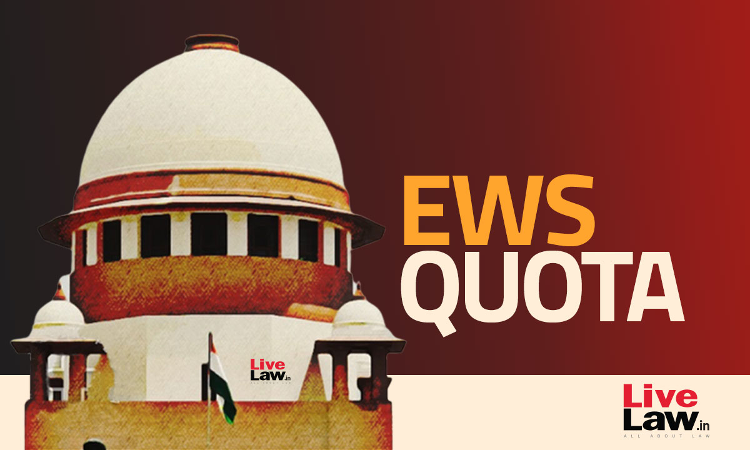EWS Reservation- Supreme Court Constitution Bench Hearing- LIVE UPDATES
LIVELAW NEWS NETWORK
13 Sept 2022 10:33 AM IST

Live Updates
- 13 Sept 2022 11:24 AM IST
Gopal: 15(4) and (5) is for all castes who are socially and educationally backward. In my State of Kerala I'm ashamed to say that government issued an order listing for EWS and the title was 'Caste' and they were all the most privileged castes in the country.
Gopal: 103rd is first amendment which is caste based reservation. Social and educational backward are two wings on which reservations are relied and if removed, it'll crash.
Gopal: Socially and educationally backward class criteria includes economically weaker sections - it doesn't include financial capacity but does include EWS. There cannot be social backwardness without economic weakness. They go hand in hand.
- 13 Sept 2022 11:22 AM IST
Gopal: The highest Varna in the hierarchy is Brahmin. There are several Brahmin communities which are victims of social discrimination and therefore have been given assistance.Noone has objected to that. We don't want any oligarchy to rule this country because then all laws will...
Gopal: ...Only be made for that one community. We saw in the west how they moved forward after scientific discoveries.
- 13 Sept 2022 11:15 AM IST
Gopal: Those who earn between 25000-66000, they're entitled to EWS reservation - because you're using economic criteria. So you remove those who are above 25000. It is not economic reservation because if it were it would not include social and educational criteria.
Gopal: Economic criteria takes into account many things whether a family is placed structurally where they cannot participate in economy. Financial conditions can be transient and can be increased by winning a lottery or lose bet. It is unreliable.
- 13 Sept 2022 11:13 AM IST
Gopal: So this is the reservation for socially and educationally forward classes with a creamy layer removed. Those who receive EWS get it because they're forward. The text of these Articles are silent on the definition.
Gopal: There's a world of difference between economic conditions and financial capacity. The Union criteria- income- below 8 L per year- below that you're economically weak. Land is also given. This number should be compared with research I provided.
- 13 Sept 2022 11:11 AM IST
Gopal: I want to briefly explain the character of EWS reservation. It requires very careful reading to decipher 103rd amendment.
The clauses in 15(4) and 15(5) and socially and educationally backward classes (SCs and STs). If you're not a backward class, you're forward classes
What this means is that eligibility in 103rd amendment is forward classes. You have to examine their social and educational condition and it's only if they fall in 15(4) and (5) they would be eligible.


